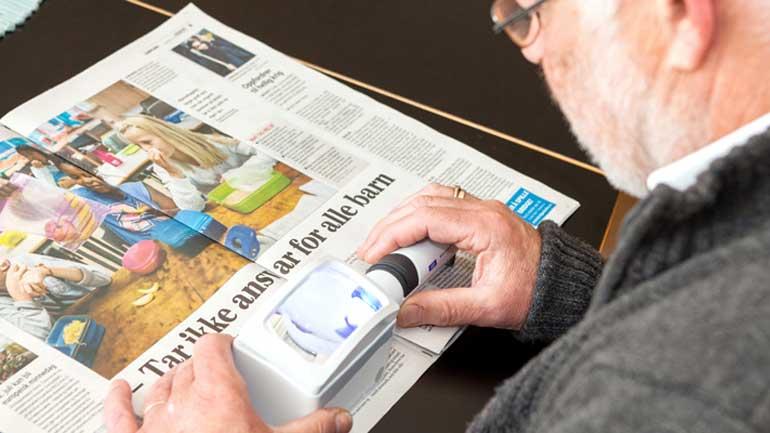Do you work with vision and are interested in continuing education?

NTNU offers 20 credits within the theme "Digital competence and visual impairment".
Tore Pukestad of Statped writes the following:
Gain knowledge and skills in the use of digital assistive technology for people with visual impairment. Central to the course is how assistive technology and teaching technology must be combined to achieve good educational solutions.
Theme in the programme:
- ICT and learning
- Universal design of ICT systems
- Compensatory techniques for visually impaired people using technology
- Enlargement programmes
- Screen readers
- CCTV
- Interactive whiteboards and the visually impaired
- Tablets and phones for the visually impaired
- Digital textbooks for the visually impaired
- Digital audiobooks for the visually impaired
- Customisation and use of MS Windows for the blind
- Customisation and use of MS Windows for the visually impaired
- Mac OS X for the visually impaired
Here you will find a full description of the programme, which starts in September 2016.
The University College of Southeast Norway, which is located in Kongsberg, offers a Master's programme in visual education and rehabilitation.
Programme manager Helle Falkenberg writes:
Now and in the future, there will be a great need for professionals who can interact with other occupational groups, as well as more knowledge about how their own working day and work tasks can be developed to meet future needs. This is particularly true in the field of vision rehabilitation, where expertise in teaching children, adults and the elderly with reduced vision or blindness to deal with various challenges in everyday life requires collaboration with people with different professional expertise.
The master's programme in vision education and rehabilitation therefore has a strong focus on the connection between clinical practice and theory as well as interdisciplinary collaboration.
Since our inception in 2015, we have students from ten different educational programmes, including teachers, nurses, vision therapists, occupational therapists and opticians in private and public practice from Norway, Sweden and Denmark. The main areas of the programme are optometry, ophthalmology, special education, rehabilitation and habilitation.
In addition, it is important to learn more about how your own clinical practice should be developed on the basis of assessing the knowledge and research that is constantly being published in various disciplines.
In the course "Interdisciplinary knowledge development", an exam paper concludes with:
"An interdisciplinary master's programme in vision rehabilitation is an important and major contributor to interdisciplinary knowledge development. It becomes an arena where different professional groups meet and discuss common issues with different approaches. This provides a completely new insight into the challenges and knowledge of other professional groups. Common meeting points contribute to networking across organisations that contribute to the rehabilitation process of the visually impaired." ("Hanna", master student)
Read more in the New Synvrälden: Nya Synvärlden 16-1, where our students are on the cover.
More information about the programme can be found at www.usn.no/mss.
